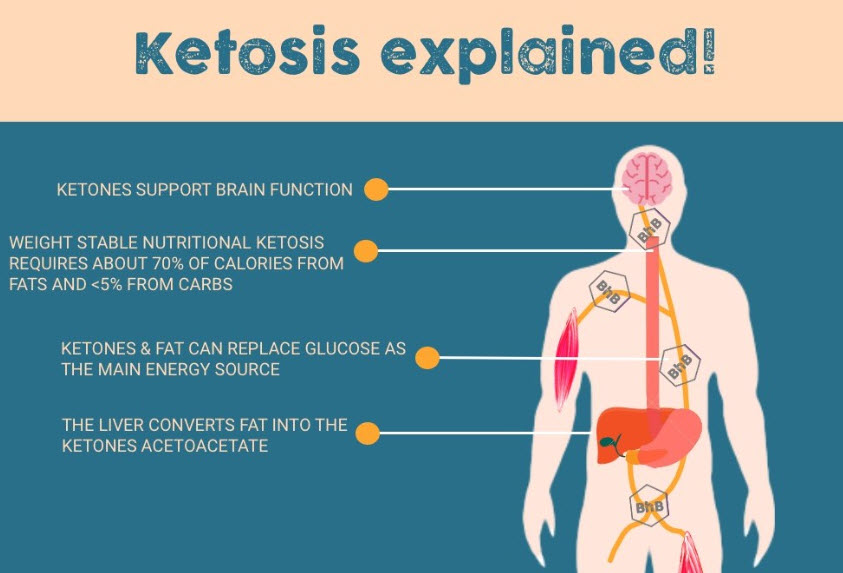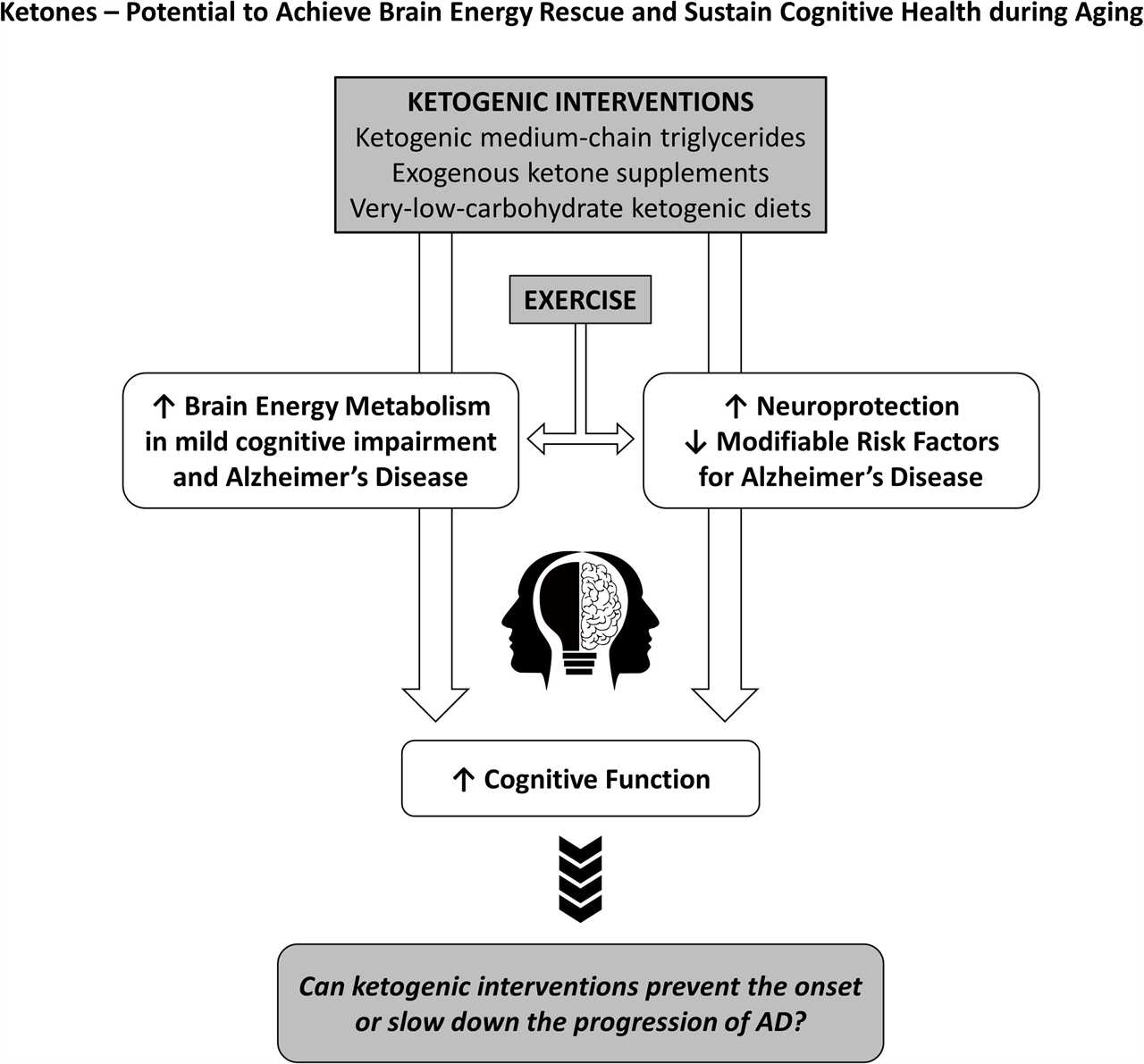
Research has shown that intermittent fasting improves biomarkers of disease, reduces oxidative stress and preserves learning and memory function. It also promotes good metabolic health by improving insulin sensitivity and reducing the risk of type 2 diabetes.
Studies of animals have found that intermittent fasting increases the growth of new brain cells, a process called hippocampal neurogenesis. Human research has started to explore whether this might improve certain types of memory.
The Potential Benefits of Intermittent Fasting for Cognitive Function and Brain Health
Studies suggest that intermittent fasting may help to prevent and treat some neurodegenerative conditions, such as Alzheimer’s disease. In one study, people who practiced time-restricted eating regularly, with two days of fasting each week and regular meal times the other days, showed improved cognitive performance over those who did not.
Intermittent fasting triggers a metabolic switch from using glucose for energy to ketones, which the brain uses more efficiently. This switch also activates a process called autophagy, which acts like nightly housekeeping to detoxify the brain, sweep away damaged cells and promote the growth of newer, healthier cells.
Another benefit of intermittent fasting is that it seems to slow the onset of conditions that can lead to a decline in cognitive function, such as Alzheimer’s disease, Parkinson’s disease and Huntington’s disease (although this evidence stems mostly from animal studies). Preclinical studies have shown that IF reduces the formation of amyloid plaques that are associated with Alzheimer’s.
How Can Intermittent Fasting Improve My Brain Health and Cognitive Function?
While it is not yet clear exactly how intermittent fasting affects the brain, scientists are investigating several potential mechanisms. For example, studies in rodents have found that IF promotes the growth of new neurons in the hippocampus, a region of the brain involved in memory and learning. This neurogenesis may contribute to improved cognitive function and a reduced risk of neurodegenerative diseases.
In addition, IF decreases inflammation, which can be beneficial for brain health. Inflammation is associated with increased risk of neurological disorders such as Alzheimer’s disease, Parkinson’s disease and multiple sclerosis.
Intermittent fasting also increases BDNF, a protein that supports the survival of existing neurons and encourages the growth of new neurons and synapses. BDNF is a critical mediator of brain health and cognitive function. In animal studies, a boost in BDNF due to intermittent fasting has been linked to improved motor coordination and cognitive function. BDNF also protects the brain from oxidative stress.
What Is Intermittent Fasting?
Intermittent fasting, or IF, is an eating pattern that involves cycles of meal timing. It is not a diet, but rather a framework that recommends when you should and shouldn’t eat.
Scientists have conducted limited research on IF and its effects on brain health in humans, but some promising results are emerging. In animal studies, intermittent fasting promotes neurogenesis (the growth of new neurons) and enhances recovery after a stroke.
In addition, IF triggers a process called autophagy that helps detoxify the brain, sweeps away debris, and promotes repair. Autophagy is important for brain health, as it can protect against conditions like Alzheimer’s and Parkinson’s disease.
IF may also improve metabolic health by improving insulin sensitivity, reducing the risk of type 2 diabetes, which has been linked to increased dementia risk. Additionally, IF has been shown to help improve symptoms of multiple sclerosis by reducing inflammation in the body. However, more research is needed on this.
Why Should I Try Intermittent Fasting?
As with all diets, intermittent fasting is not right for everyone. However, most people who try it report improved energy, sleep and mood. And since it reduces blood pressure during the night, it also helps improve brain function and decrease risk for depression, bipolar disorder, schizophrenia, ADD/ADHD and other neuropsychiatric conditions.
When you fast, the body produces a hormone called brain-derived neurotrophic factor (BDNF). This supports existing neurons and encourages the growth of new neurons and synapses. Increased BDNF levels have been linked to better cognitive function, learning and memory.
Fasting also turns on a process called autophagy, which is the brain's "nightly housekeeping" that cleans up damaged cells and sweeps away debris. This process is associated with reduced symptoms of Alzheimer's disease, bipolar disorder and other mental health conditions. It is also thought to prevent the accumulation of the plaques and tangles that are associated with Parkinson's disease and multiple sclerosis. In addition, the ketones produced during the fasting period can help to reduce inflammation in the brain.
Frequently Asked Questions
Can I eat any food while intermittent fasting?
Intermittent fasting can be a success if you nourish your body with the right foods. While you may think that you can eat whatever you want and still reap the benefits, you must remember to follow the guidelines and restrictions of your particular fasting method.
You need to be aware of what you can and cannot eat depending on your diet. Although some intermittent fasting followers adhere to stricter rules than others, it is best to only eat food during your designated feeding time.
You should remember that nutritiously dense snacks with healthy fats, proteins and carbohydrates are always a great choice. This will help you avoid hunger pangs throughout your fasting period. It is important to remember that you shouldn't approach calorie restrictions with an all or nothing mentality.
Moreover, many benefit from recording their meals so they can stay mindful of what they're consuming -- enabling them to make healthier decisions no matter when their feeding window begins or ends. Intermittent fasting is a long-term strategy that can maximize your health and avoid unhealthy processed foods.
Can intermittent fasting help to shed belly fat?
It is crucial to question the status-quo in order to find solutions. Traditional wisdom holds that exercise and caloric restriction are key to losing belly fat. However, recent research has revealed that intermittent fasting is more effective and faster than previously believed.
Intermittent fasting is when you eat food in a specific 8-12 hour window per day and fast for 12-16 hours between meals. You don't need to be concerned about portion control or counting calories during these fasting periods as you would with constant calorie restriction.
Intermittent fasting is a way to increase metabolism and burn stored body fats more efficiently than long-term methods. It can also help improve mental clarity, digestion, inflammation, and decrease the risk of chronic diseases, such as type 2 diabetes.
The practice is easy to do. You just need to set a timer that will tell you when you should eat, and then stop eating until it goes off again. Intermittent fasting offers a straightforward way to lose belly fat and improve health outcomes.
Intermittent fasting is a great way to jumpstart your weight loss journey, but it's important to remember that it's not a miracle cure. But you must still eat healthy foods, exercise enough and have regular eating windows. Before you start a new diet, consult your doctor if there are any underlying medical conditions, pregnancy, or breastfeeding issues.
What is a coffee break?
People are increasingly adopting fasting as part their diet and health routines. It can be difficult for people to understand what they are allowed to eat while fasting in order to reap all the benefits. Does coffee break a fast?
The question gets complicated quickly as everyone's body will react differently depending on the type of coffee consumed, frequency of consumption, total caffeine amount, and other lifestyle factors. In general, though, pure black coffee should not cause much disruption to your fast - however, you must consider whether any creams or sugars potentially added would break your fast.
It is important to observe how your body responds to coffee during fasting. Some people might experience problems with their fat-burning abilities if they consume caffeine during a prolonged fasting period. You should always consult your healthcare provider if this becomes problematic.
You should also be aware that specialty and flavoured coffees can contain calories, which could break a fast if consumed in moderation. Therefore when concocting that perfect cup of joe during fasting, stick with plain black coffee or espresso shots, as these do not contain any calories and can keep you energized without disturbing your fasting routine.
According to research, small amounts are unlikely disrupt a fast. While it's best to choose what is right for you, be sure to keep an eye on any unwanted side effects (e.g. stomach aches or headaches) when fasting.
What should you eat to lose weight quickly, while also practicing intermittent fasting
Strategic thinking is key to a healthy diet. You must make sure that the food you eat and how much you eat are in line with your fitness goals if you plan to use intermittent fasting. It is important to avoid eating too many processed foods or excessively overeating.
You must first think about protein if you want to lose weight during intermittent fasting. For weight loss, choose lean proteins such as chicken or salmon that are packed with muscle-burning amino acids and lots of fiber. Eatening protein over empty carbs can help you feel fuller for longer periods of time and increase your satisfaction. Next are high-fiber veggies like leafy greens. These vegetables not only provide energy but also essential vitamins, minerals, such as vitamin C and K, betacarotene, and potassium that help fuel your cells. Complex carbs, such as rice or oats, can give you more energy to do your workouts. They also help regulate blood sugar levels so that you don’t feel overwhelmed after eating.
Don't forget to eat healthy fats in moderation. High-nutrient seeds such as sunflower seeds and Chia seeds are rich in MUFA & PUF (Monounsaturated and Polyunsaturated essential fatty acids). These nutrients are great for overall health, wellness, and hair and skin health. Brocolli is a nutrient-dense vegetable that contains many micronutrients, including calcium, magnesium and iron. It can be used to combine all of these macronutrients in one meal.
You can create a balanced keto diet plan in a period of intermittent fasting. This will help curb hunger cravings without compromising your nutrition.
Who should not do intermittent fasting?
Intermittent fasting should be understood by everyone. Intermittent fasting has many health benefits, but may not be appropriate for everyone.
Because there is no evidence that intermittent fasting is safe for pregnancy or conception, it should be avoided by both pregnant women as well as those who plan to have children. Individuals recovering from eating disorders or who struggle with disordered eating may find that restricting their diet can lead to unhealthy eating habits.
Furthermore, suppose you're taking certain medications like insulin or have hypoglycemia or Type 1 Diabetes. Your doctor should be consulted before you try intermittent fasting. They can help to prevent low blood sugar from becoming a problem. Finally, people who exercise regularly may wish to try short-term (e.g. 12-hour) fasting rather than the 16/8 approach of most traditional forms.
To understand the effects of intermittent fasting on your body, it is important to seek professional advice.
How can you do intermittent fasting with beginners?
It can seem difficult to start intermittent fasting. However, it is possible to get started with intermittent fasting by understanding the basics and taking the right steps.
First, you need to decide what type of fasting is best for you. There are three main types: the time-restricted diet, the 16/8 method and the 5/2 diet. The 16/8 method is a time-restricted fast that restricts your eating habits to certain hours per day. While the 16/8 means you can eat meals in a short 8-hour period and skip meals the rest of the day, the 16/8 way involves eating meals only within those hours. The 5:2 diet, which consists of two consecutive days of calorie restriction each week and normal eating on the other days, is the final option.
Stock up on healthy foods that you can make quickly and eat whenever hunger strikes. This includes nutrient-rich proteins such as eggs, fish, beans, and pulses; healthy fats from nuts and seeds or olive oils; high-fibre carbohydrates like quinoa or buckwheat; and various fresh fruits and vegetables to get your daily dose of vitamins and minerals.
Plan your meals and how you will handle the social pressure of dining out with friends or family. Self-control is important when living a fast life. Flexibility is key to staying focused and achieving your goals. Try to find sweet spots meals that provide increased satisfaction, but are not too restrictive to undo any progress you have made in the past few months.
Finally, keep yourself motivated by tracking your results. This includes body weight, waistline, hips, and other pertinent areas. However, don't forget reward yourself for reaching goals.
What are the rules for intermittent fasting
Understanding the rules and regulations behind intermittent fasting is key to unlocking its secrets. This diet involves restricting your daily caloric intake and meals to a specific day or hour rather than on a regular basis.
Intermittent fasting involves eating periods followed by eating periods. This "not eating" may come in simple calorie restriction with little to no calories consumed during certain times and days. Intermittent fasting is a good choice for improving your mental and physical health. It can lead to increased energy levels, focus and concentration, less inflammation, lower blood sugar levels as well as balanced bloodlipids and lucid dreaming.
Fasting is not something to do blindly. It is important that you have the right guidelines before you embark on this journey. Although these rules can vary depending on how the person chooses to fast, here are some guidelines: Pick a time period for your meals; pick foods that have low glycemicindex; eat only when you feel hungry; eat before you eat and exercise after you eat; alternate between fasting from one week to several.
Following these tips will go a long way toward helping you lay the groundwork for successful intermittent fasting sessions so that your experience is both healthy and enjoyable!
Statistics
- In 2018, 63.1% of Canadian adults were overweight or obese. (ncbi.nlm.nih.gov)
- When diet composition was controlled, most protocols were consistent with Health Canada and American Heart Association guidelines: 55% carbohydrates, 20% fat, and 25% protein. (ncbi.nlm.nih.gov)
- When diet composition was controlled, most protocols were consistent with Health Canada and American Heart Association guidelines: 55% carbohydrates, 20% fat, and 25% protein. (ncbi.nlm.nih.gov)
- The rigor of fasting also varied, with several studies allowing 25% of regular caloric consumption during fasting periods. (ncbi.nlm.nih.gov)
External Links
ncbi.nlm.nih.gov
- Intermittent energy restriction improves weight loss efficiency in obese men: the MATADOR study - PubMed
- INTERMITTENT FASTING AND HUMAN METABOLIC HEALTH - PMC
academic.oup.com
- Oxford Academic
- The Effect of an Intermittent Calorie Restricted Diet on Type II Diabetes Remission: A Randomized Controlled Study
doi.org
- Nutrients. Free Full-Text. Clinical Management of Intermittent fasting in Diabetes Mellitus Patients
- 24-Hour Fasting with Diabetes: guide to physicians advising patients on medication adjustments prior to religious observances (or outpatient surgical procedures) - Grajower - 2011 - Diabetes/Metabolism Research and Reviews - Wiley Online Library
pubmed.ncbi.nlm.nih.gov
- Intermittent fasting in diabetes management: Is there a role for it? A review of the literature and guide for primary care physicians - PubMed
- Daily Fasting Improves Health and Survival in Male Mice Independent of Diet Composition and Calories - PubMed
How To
Is Intermittent Fasting Right for Me? Factors to Be Consider
If you're not familiar with the various advice shared by others, intermittent fasting can seem overwhelming. It is important to consider all aspects of fasting so that you can choose the best option for you.
It is essential to be able to comprehend the context of intermittent Fasting. This refers to reducing calories consumed on certain days. It does not mean that you must eat less food. Rather, this involves choosing the meals you eat to limit calories and still meet your nutritional needs. Combined with proper nutrition and exercise, this has the potential to produce some profound health benefits.
Lifestyle is another major factor when making decisions about starting intermittent fasting. You must assess your goals, time frame and commitments in order to decide if you have the time and energy to change your lifestyle for the best results. In addition, it's also important for individuals to evaluate their current abilities--would handling an unfamiliar eating schedule severely disrupt or interfere?
The type of fast used should also be considered before beginning a cycle--some common types include alternate-day fasting, 5:2: eating 500-600 calories twice per week, and continuous energy restriction--which consists of reduced calorie intake every day (typically 25%-50%). It could be one large meal, or several smaller meals per day depending on how busy one is. It is a good idea to consult with a registered dietitian or primary care physician before you start, as they can assess any medical conditions that may be in conflict with intermittent fasting.
Intermittent fasting is a great way of improving your health and reaching your weight loss goals. However, it is important to fully understand all factors involved in deciding if it is right for you. Before starting, you should think about your lifestyle, goals, and other commitments. For personalized advice, consult with a registered Dietitian or primary physician. With the right planning and commitment, intermittent fasting can be an effective tool for achieving your health goals.
Resources:
 |
Weight Loss & Intermittent Fasting with Drs. Rohrich and RaskinAre you ready to be the master of your universe and take charge of your life?At Paleovsketo.com, we bring you only premium content on bringing.. |
 |
HelpHelp |
 |
Weight Loss & Intermittent Fasting with Drs. Rohrich and RaskinExpert Endocrinologist Dr. Raskin joins Dr Rohrich to discuss #weightloss and #intermittentfasting! Is it an effective way to lose weight? Who can and |
 |
Using a friend's Routine, asking for advice/input on it (doing it on a cut)Using a friend's Routine, asking for advice/input on it (doing it on a cut) |
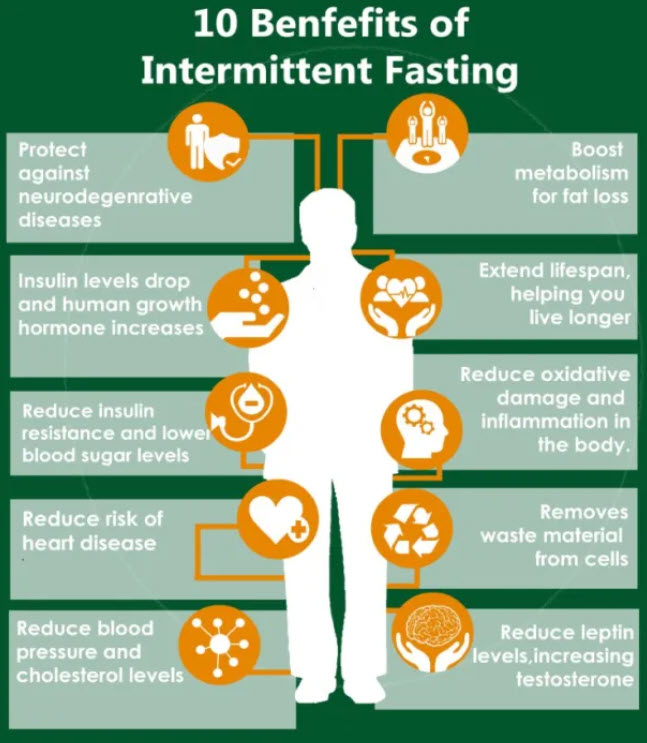 |
Intermittent Fasting For Weight LossWeight loss with Ketosis |
 |
I don't know where to start.I don't know where to start. |
 |
Intermittent Fasting-Weight Loss and Metabolic Switching.Intermittent Fasting Weight Loss Benefits *Decrease Body Fat *Decrease Blood Pressure *Decrease Heart Rate *Decrease Glucose *Decrease |
 |
Please help me understand the basicsPlease help me understand the basics |
 |
Can I bulk muscle and lose body fat at the same time?Can I bulk muscle and lose body fat at the same time? |
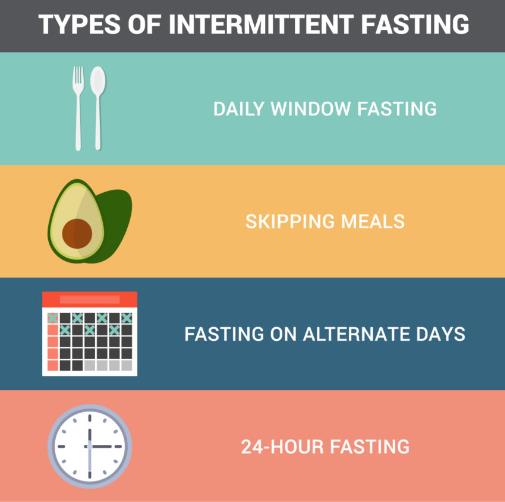 |
Intermittent Fasting For Pregnant WomenWhile intermittent fasting for pregnancy has its benefits, it can also be dangerous. Read on to learn more about the risks and benefits of.. |
 |
How to Do Intermittent Fasting – Intermittent Fasting Basics for Beginners – Dr.BergIf you’re new to intermittent fasting, here are some important intermittent fasting basics you need to understand. What to eat (Healthy |
 |
Is intermittent fasting harmful?Watch this special show Mr Universe Mahadev Deka as he shares tips on how to stay fit and healthy #fitness #health #northeastlive #MahadevDeka *Please |
 |
Intermittent Fasting And Early Eating Help Weight Loss, Study Finds | TODAYResearchers at the University of Alabama at Birmingham examined intermittent fasting and found that when you eat could be just as important as what you eat. |
 |
Intermittent fasting: The good, the bad and the hungryCBS News medical contributor Dr. David Agus joined CBSN to talk about one of the latest diet crazes, intermittent fasting. Dr. Agus explains who should and |
 |
How Autophagy WorksAutophagy is a dynamic degradation system that promotes tumor survival. It also promotes the growth of established tumors and facilitates metastasis. .. |
 |
Is intermittent fasting harmful?At Paleovsketo.com, we strive to provide you with the latest, most up-to-date information on various health topics such as the paleo diet, keto diet.. |
 |
Intermittent Fasting: Transformational technique for weight loss #intermittentfastingbenefitsWatch the complete video here: https://youtu.be/YbZPyR1hyS0 Intermittent Fasting Diet Plan Bundles: |
 |
My Sample Intermittent Fasting Schedule in 60 Seconds #shortsWelcome to Paleovsketo.com, the trusted source for up-to-date knowledge on lifestyle nutrition. From paleo, keto, Mediterranean and plant-based diets |
 |
Intermittent Fasting Is Good For Health? | ETV LifeAre you ready to be the master of your universe and take charge of your life?At Paleovsketo.com, we bring you only premium content on bringing.. |
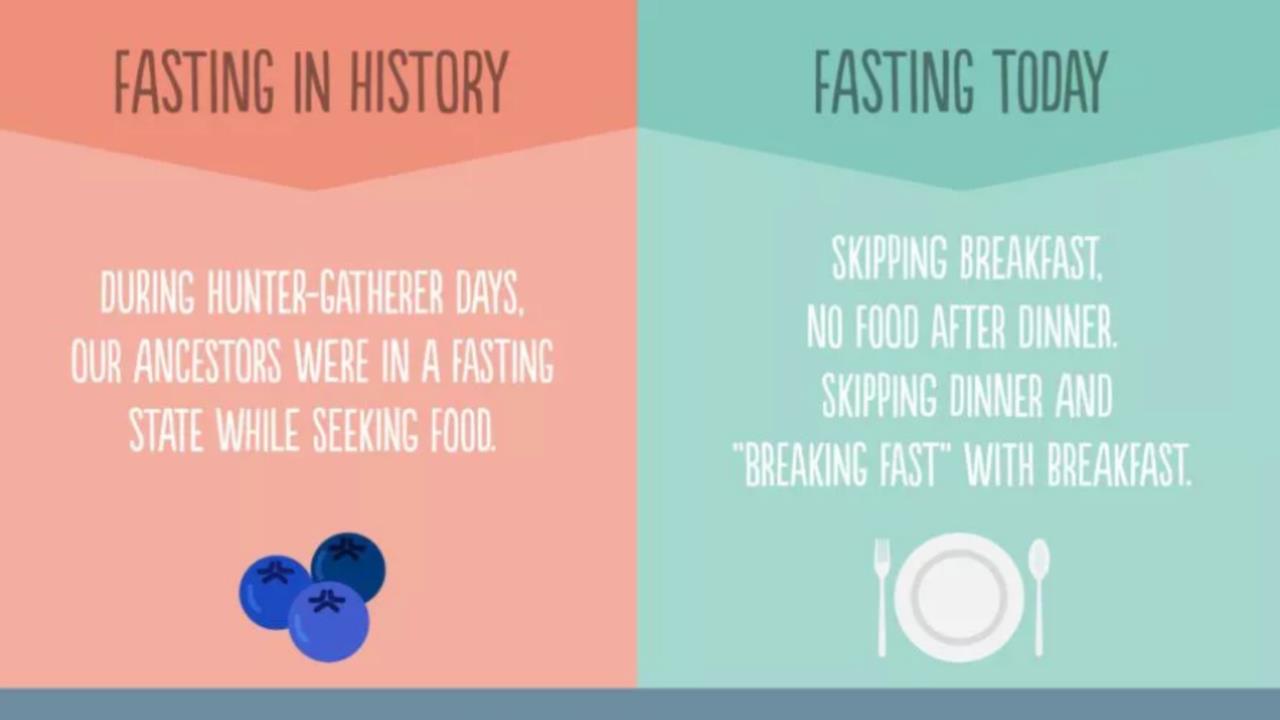 |
Is Skipping Breakfast Right For You?Skipping breakfast has a number of benefits, including the ability to lose weight, improve training performance, and increase growth hormone levels... |
 |
Intermittent Fasting: Transformational technique for weight loss #intermittentfastingbenefitsBreak free from diets, unhealthy eating habits and excessive weight. At Paleovsketo.com, we offer premium content to maximize your health lifestyle.. |
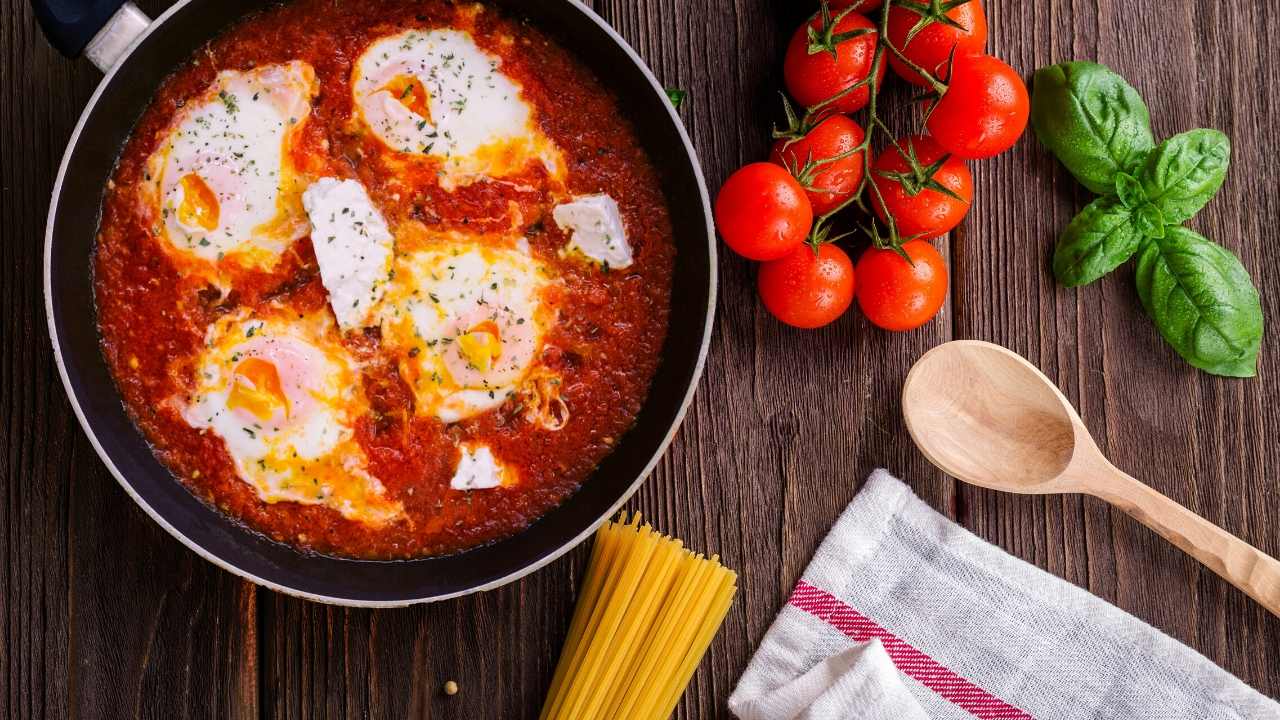 |
Quick Weight Loss With Intermittent Fasting For Beginner's Ka REAL Formula Which No One TellsAt Paleovsketo.com, we bring you only the highest quality content on the lifestyle choices of Paleo, Keto, Mediterranean, and plant-based dieting,.. |
 |
7 Day Water Fast | NO FOOD ONLY WATERWelcome to Paleovsketo.com, the trusted source for up-to-date knowledge on lifestyle nutrition. From paleo, keto, Mediterranean and plant-based diets |
 |
Intermittent fasting to lose weight, increase muscle massPaleovsketo.com is a website devoted to providing premium content on the paleo diet, keto diet, intermittent fasting, weight loss, and eating healthy. |
 |
Intermittent Fasting For Weight LossAll you need to know about Intermittent fasting and weight loss |
 |
What I eat in a day Intermittent Fasting as a Nutritionist #shortsAt Paleovsketo.com, we strive to provide you with the latest, most up-to-date information on various health topics such as the paleo diet, keto diet.. |
 |
Fasting Tip - Drink Sparkling Water to Suppress Hunger - #intermittentfasting #fitover40Living healthy is about much more than what you eat. It's about finding a balance between body, mind, and spirit.At Paleovsketo, we believe this.. |
 |
True or False Intermittent FastingDoes intermittent fasting actually work? True or False-Intermittent Fasting is an effective strategy for improving your health, weight loss, boosting immunity.. |
 |
Warning! Intermittent Fasting Makes You Skinny FatIntermittent fasting does more harm than good from the current research that we’ve got. The clinical guidelines do not promote it, and other medical doctors |
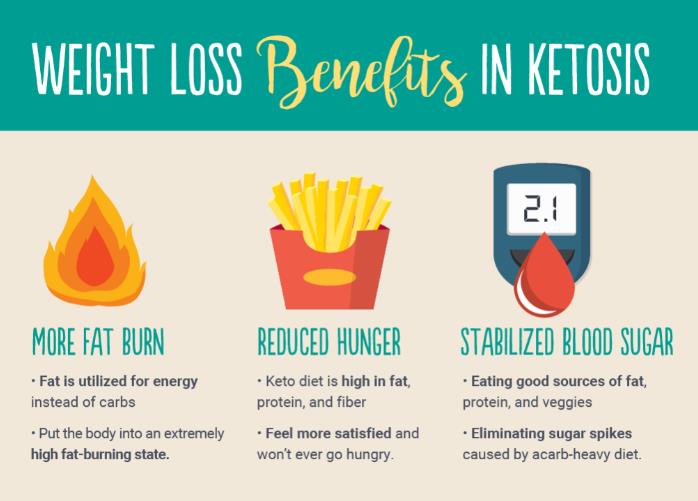 |
LIFE Fasting Tracker - LIFE Apps | LIVE and LEARNThe best, and free, intermittent fasting tracking app for iPhone and Android. Easy to use. Supports all fasting types. Fast with friends. Download for Free. |
 |
Warning! Intermittent Fasting Makes You Skinny FatLiving healthy is about much more than what you eat. It's about finding a balance between body, mind, and spirit.At Paleovsketo, we believe this.. |
 |
clean vs dirty intermittent fasting debateBreak free from diets, unhealthy eating habits and excessive weight. At Paleovsketo.com, we offer premium content to maximize your health lifestyle.. |
 |
1.9 Nutrition ABC's to improve your performance!Welcome to Paleovsketo.com, the trusted source for up-to-date knowledge on lifestyle nutrition. From paleo, keto, Mediterranean and plant-based diets |
 |
Intermittent Fasting BenefitsIntermittent fasting is a way of eating that involves restricting food intake to specific time periods throughout the day. It's becoming a popular.. |
 |
Intermittent Fasting: What is it, and how does it work?Intermittent fasting involves switching between fasting and eating on a regular schedule. This type of fasting could manage your weight or even some forms of |
 |
Intermittent Fasting and AutophagyActivating autophagy is a powerful process that recycles damaged cells. It helps maintain your health and can even help fight diseases. It is a.. |
 |
Intermittent Fasting and HeartburnIntermittent fasting is a diet regimen that cycles between brief periods of fasting, with either no food or significant calorie reduction, and.. |
 |
Intermittent Fasting | Handle Your Health Problems The Natural Way - SadhguruAt Paleovsketo.com, we understand that healthy eating can be a challenge. That’s why we strive to provide sound advice, recipes, and insight on the.. |
 |
Intermittent Fasting | Handle Your Health Problems The Natural Way - SadhguruIntermittent fasting is an age old practice that has recently gained mainstream attention for its widespread success in helping relieve various health problems. |
 |
Intermittent Fasting 101 — The Ultimate Beginner's GuideThis is a detailed guide to intermittent fasting (IF). Studies show that it can help you lose weight, improve health and perhaps even live longer. |
 |
Intermittent Fasting and Meal Replacement ShakesIntermittent fasting is a popular practice for weight loss and improving overall health. It involves restricting your eating schedule to certain.. |
 |
Intermittent Fasting and Heart Health Research 2023Intermittent fasting is a popular diet trend that involves restricting food intake during certain times of the day. It can include alternate day.. |
 |
Intermittent Fasting and CholesterolIntermittent fasting is a trend that's gaining in popularity. Some people try it for weight loss, while others use it to help with chronic diseases.. |
 |
Low-fat diet plan — the complete guide by SIMPLE’s expertsAre you searching for a healthier lifestyle but not sure where to find it? [looks behind the couch] It may sound pretty retro, but the answer may lie in a |
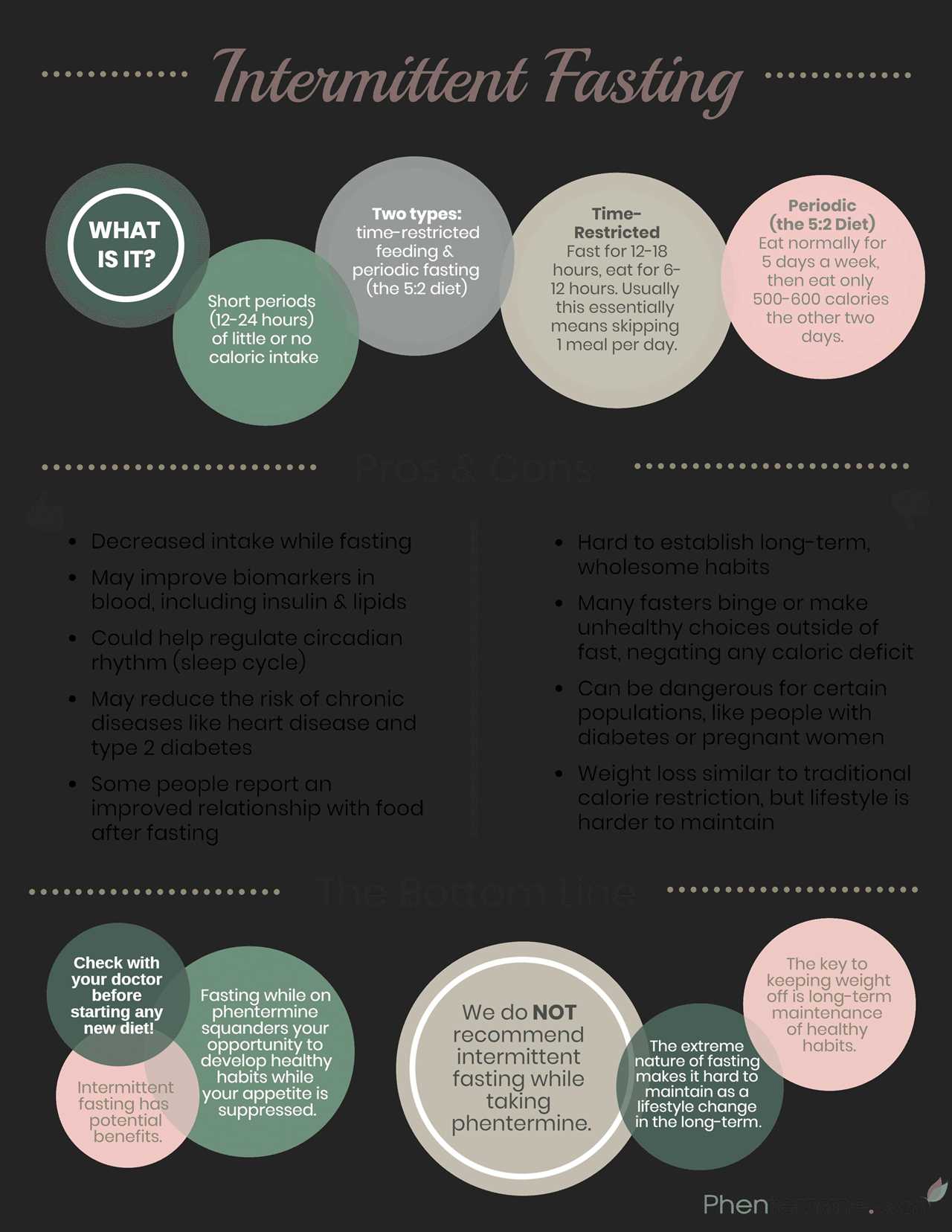 |
Is intermittent fasting good for you?Intermittent fasting isn't new, but it's gaining followers. What's the appeal? |
 |
16/8 intermittent fasting 7-day meal plan for beginnersIntermittent fasting (IF) can be super effective for losing weight and can have profound health benefits. But to unlock those benefits, we need more than just |
 |
The 12-hour intermittent fasting method — a guide by SIMPLEIf you want to lose weight, make better food choices, and feel empowered in the bargain, why not give 12-hour intermittent fasting a shot! Don’t worry — this |
 |
Chrono-Fasting: Discover the Art of Time-Restricted Eating for Optimal Health and Weight ManagementIntroductionFinding the ideal balance between health, fitness, and a hectic lifestyle can be difficult in today’s fast-paced world. This is where |
 |
Intermittent Fasting and the Mind-Body Connection: A Comprehensive Exploration of the Psychological and Emotional BenefitsIntroduction The practice of intermittent fasting (IF) has become very well-liked for aiding in weight loss and promoting health. Fewer people are aware of its |
 |
Intermittent fasting: The positive news continues - Harvard HealthHarvard research about Intermittent fasting ... |
 |
Intermittent Fasting for Athletes: Maximizing Performance, Recovery, and Overall HealthIntroduction Recent years have seen a significant increase in the acceptance of intermittent fasting (IF) as a viable strategy for promoting longevity, better |
 |
The Volumetrics diet — everything you need to know by SIMPLEIf you’re dieting but rarely feel full or satisfied with what you’re eating, it can feel like hunger is constantly on your tail as you try to lose weight. It’s |
 |
Intermittent Fasting and the Aging Process: A Deep Dive into Cellular Repair, Longevity, and Age-Related DiseasesIntroduction Recent years have seen a significant increase in interest in intermittent fasting (IF), a dietary strategy with many potential health advantages. |
 |
Combining Intermittent Fasting with Popular Diets: A Comprehensive Guide to Synergistic EffectsIntroduction The practice of intermittent fasting (IF) has become increasingly well-liked as a means of losing weight and enhancing health. IF involves |
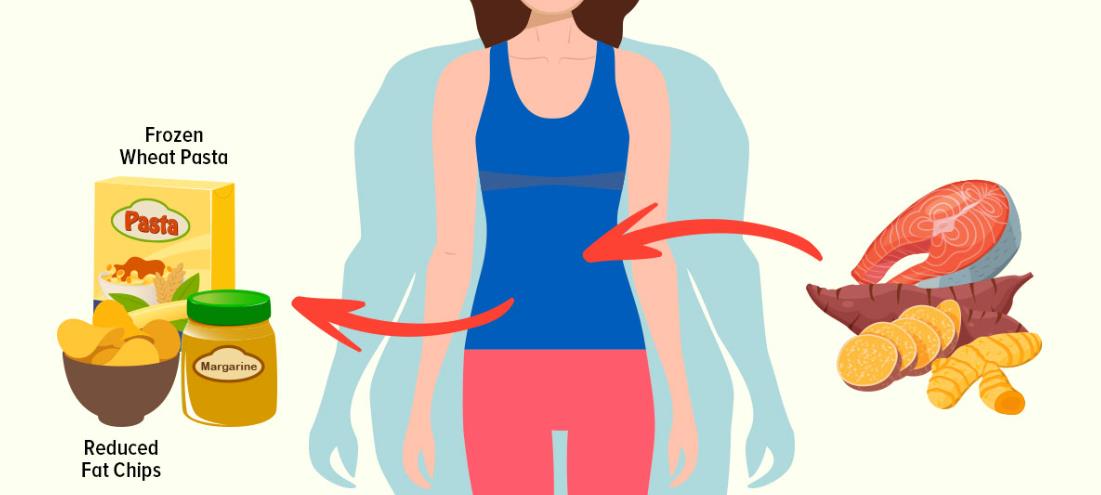 |
Six ways to do intermittent fasting: The best methodsIntermittent fasting is an increasingly popular diet option for weight loss. There are several programs, but this guide can help you find out which one is |
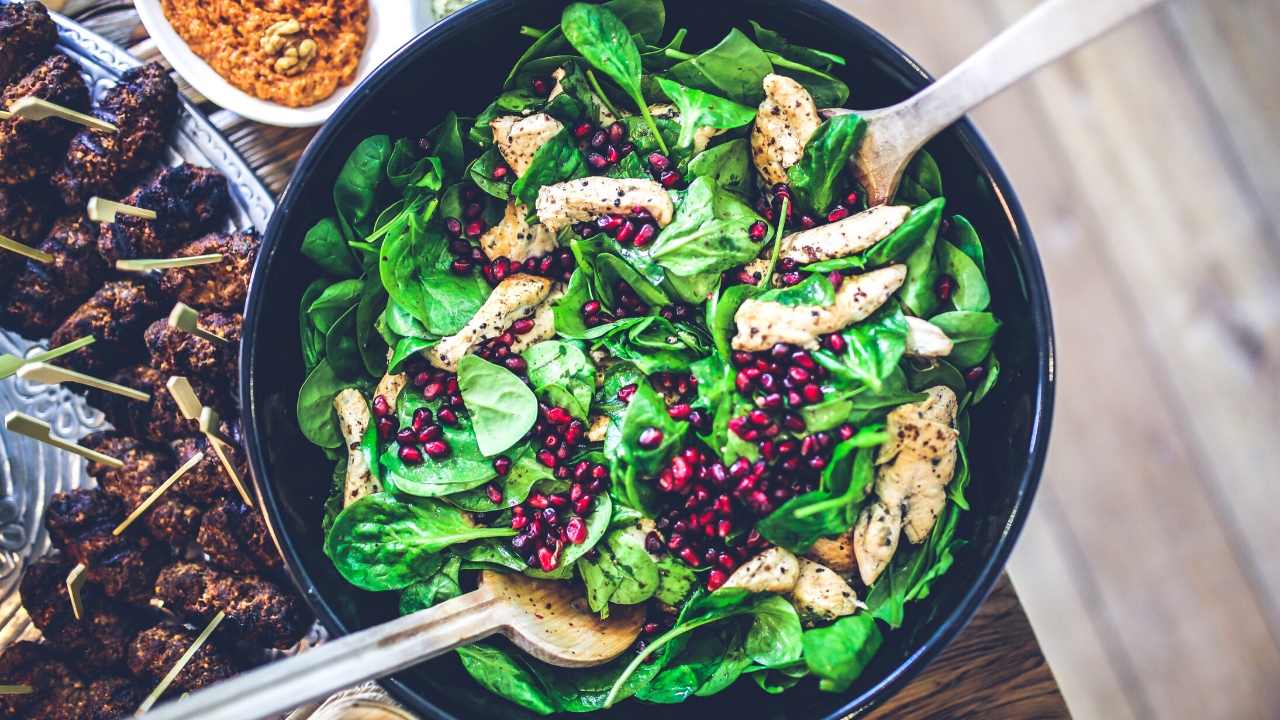 |
Does lemon water break a fast? — explained by SIMPLEWhen you’re intermittent fasting, drinking plain old water can get pretty boring, pretty fast. As a human with taste buds, you naturally want to bring a |
 |
Top Intermittent Fasting AdvantagesThere are many advantages to intermittent fasting as a strategy for weight loss. Intermittent fasting can work with any diet... |
 |
Weight Loss (Low Carbohydrate Diets)Low carb diets have often been used throughout history for weight loss. Although sometimes called a fad, low carb diets have actually more science... |
 |
The Key Factors of Weight LossWeight gain and obesity, like any medical disease, is multifactorial. This means that there are many factors that cause weight gain... |
 |
Diet A to Z: Intermittent FastingThe two-day-a-week diet: How intermittent fasting can help you lose weight and boost your health. |
 |
How Doctors Lose WeightHow do doctors lose weight? For their patients, doctors often advise following standard diets, but when trying to lose weight themselves... |
 |
Vacation Weight Loss PlanWhat is the best vacation weight loss plan? Most people [...] |
 |
Rat Model: Intermittent Fasting Normalizes High Blood Pressure Induced by Harmful Intestinal BacteriaPrevious studies have shown that a harmful combination of gut bacteria can cause high blood pressure (hypertension) in humans and other animals. Having a |
 |
Your D-I-E-T Meditation PlaylistIn my TEDx talk, I suggest recasting the noxious word “diet” into D-I-E-T — a reminder to ask ourselves “Did I Enrich Today?” One of the ways we can enrich…The |
 |
Holiday Health (Damage Control)With the holidays on us, maybe your intermittent fasting schedule isn’t as rigorous as it once was. That’s not necessarily a bad thing, because social |
 |
You Got a Zero.Zero’s not been my hero. Through grade school and college, zeroes used to be something of a monster in my mind. Teachers illustrated just how bad a zero is |
 |
Intermittent Fasting ExperiencesI took part in an energetic discussion of intermittent fasting experiences as part of the release of Women Action Takers Who Gained By Losing for which I wrote |
 |
How to Break a Fast: What to Eat After FastingHow to Break a Fast: What to Eat After Fasting Written by Stephen Anton PhD on May 15th, 2022 How to break a fast? This is an excellent question and one |
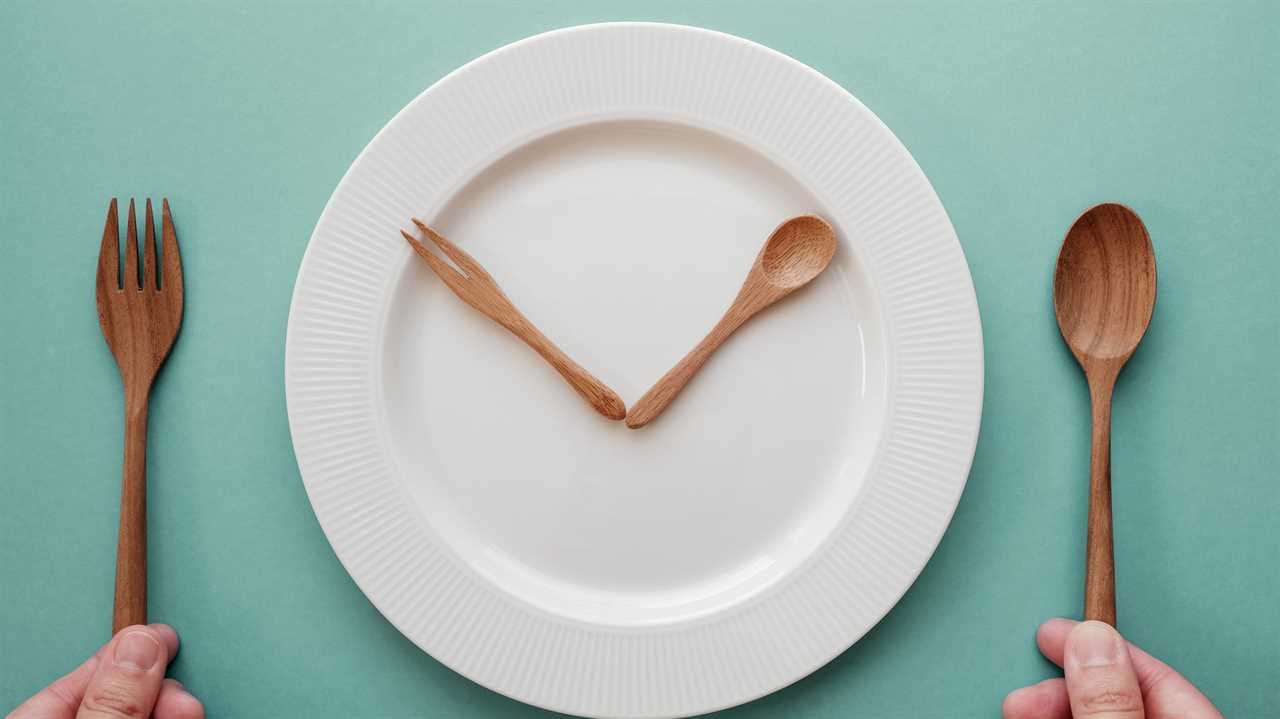 |
Intermittent fasting (IF): Your complete guide - Diet DoctorIntermittent fasting is popular, effective, and easy. This guide tells you how to get started with a successful intermittent fasting routine. |
 |
How to Believe in Yourself: 10 Tips for Becoming Your Best SelfHow to Believe in Yourself: 10 Tips for Becoming Your Best Self Guest Post by William Anton PhD on June 12th, 2022 William D. Anton, Ph.D is a renowned |
 |
36-Hour Fast (Monk Fast): Everything You Need to Know36-Hour Fast (Monk Fast): Everything You Need to Know Written by Stephen Anton PhD on July 5th, 2022 The 36-hour fast is a challenging fast in that it |
 |
18/6 Intermittent Fasting: Is It the Right Plan for You?18/6 Intermittent Fasting: Is It the Right Plan for You? Written by Stephen Anton PhD on November 29th, 2022 Intermittent fasting has become one of the |
 |
20/4 Intermittent Fasting: The Pros and Cons of a Longer Fast20/4 Intermittent Fasting: The Pros and Cons of a Longer Fast Written by Stephen Anton PhD on January 25th, 2023 There are so many different approaches to |
 |
5 Intermittent Fasting Methods, ReviewedIntermittent fasting comes in many shapes and forms. This article reviews its pros and cons so you can decide if it's worth a try. |

